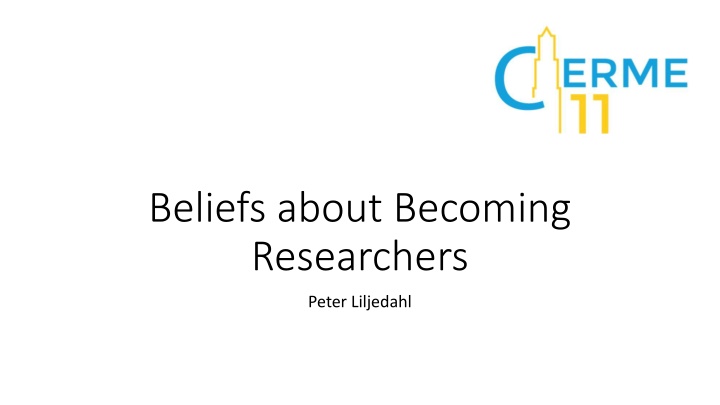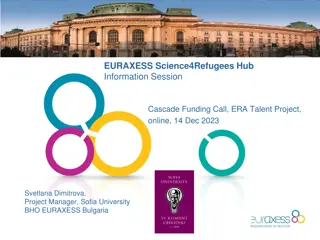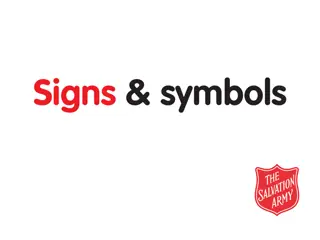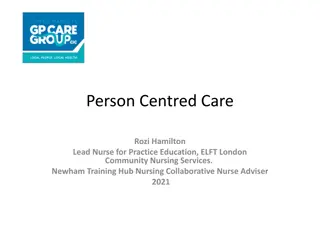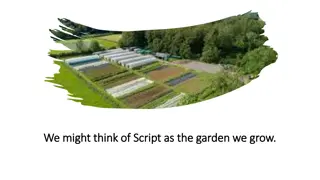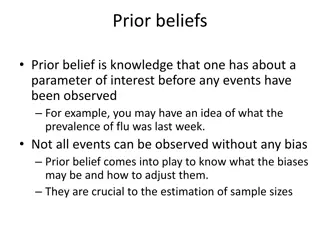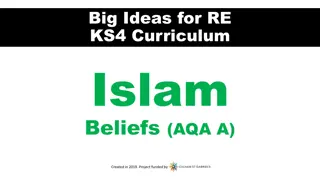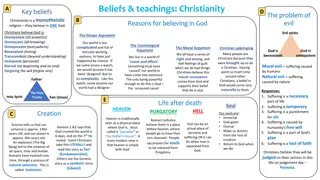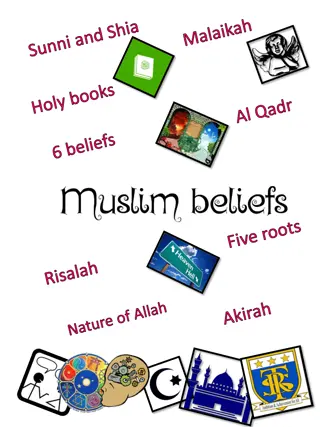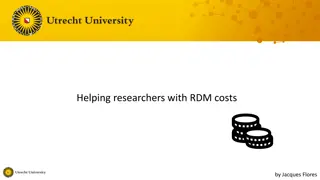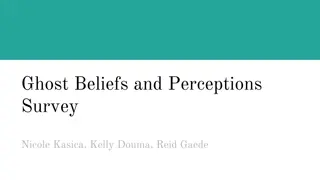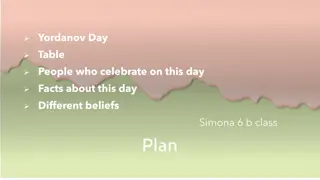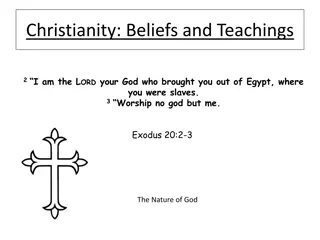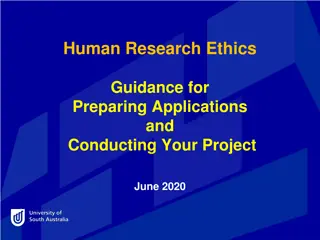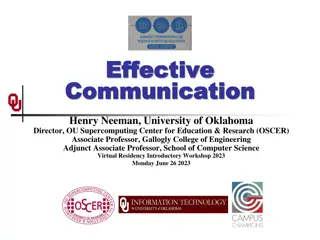Beliefs about Becoming Researchers
In this content, Peter Liljedahl discusses beliefs held by individuals when embarking on the journey to becoming researchers. He sheds light on various aspects that influence this process, providing valuable insights for those aspiring to pursue a research career. Liljedahl's perspective offers a unique outlook that can benefit both current and future researchers in navigating their professional paths effectively.
Download Presentation

Please find below an Image/Link to download the presentation.
The content on the website is provided AS IS for your information and personal use only. It may not be sold, licensed, or shared on other websites without obtaining consent from the author.If you encounter any issues during the download, it is possible that the publisher has removed the file from their server.
You are allowed to download the files provided on this website for personal or commercial use, subject to the condition that they are used lawfully. All files are the property of their respective owners.
The content on the website is provided AS IS for your information and personal use only. It may not be sold, licensed, or shared on other websites without obtaining consent from the author.
E N D
Presentation Transcript
Beliefs about Becoming Researchers Peter Liljedahl
DEPENDENT INDEPENDENT (Lovitts, 2005) self-efficacy (Albold, 2011) socialization process (Gardner, 2008) research community (Schoenfeld, 1999) How are beliefs of graduate students implicated in the transition from dependent to independent researchers?
while doing gather data Completed Completed Completed Completed Worked on from thesis a master's published collection a project Began to research the PhD outside analysis courses writing Begun thesis thesis thesis thesis data data Has Barb Nancy Charley Nicole Mathew Marcus Samantha Veronica Richard Maureen Stephanie Jennifer Mandy Donna Marnie Master's Students Students Phd
QUESTIONNAIRE 1. What is research? 2. What does it mean to do research? 3. How is doing research similar and different to writing up your research? 4. What do you know now about doing research that you didn't know when you started the program? 5. What has helped you the most in doing research? 6. What has helped you the most in writing up your research?
What is research? all believed research is a verb most believed research is a formal process all doctoral students believed it was centred on something of interest to them all master s students believed that research was quantitative and that research questions were assigned Research is a formalized and systematic way of pursuing curiosity. (Richard, PhD)
What does it mean to do research? identifying a research question reading literature the selection and use of theory the selection and use of methods the collection of data analysis of data the arrival at some sort of conclusion
What does it mean to do research? 1. identifying a research question 2. analysis of data 3. the arrival at some sort of conclusion 4. the selection and use of methods 5. the collection of data 6. reading literature 7. the selection and use of theory
How is doing research similar and different to writing up your research? DOING RESEARCH IS WRITING UP RESEARCH IS Mathew collection of data formalizing the process messy and unclear, full of bumps and bruises, falls and getting ups Marcus also messy, but it is a structured mess in answer to questions that you as a researcher have Samantha organizing it in a way to share with others Veronica data collection process is fun and messy where the cleanup kicks in an ongoing process where there is a constant need to find out how or why something operates the way it does a finite process reporting on how the investigation was carried out to achieve the necessary findings Stephanie the findings may not be clear, but they are usually known Donna the findings are usually unknown
How is doing research similar and different to writing up your research? Doing the research is exciting, like a game by my own rules. Writing the research: as fun as a visit to the dentist, followed by bad news and a car accident on the way home. (Nicole, MSc) In doing research, the findings are usually unknown (although they could be anticipated), whereas in writing up research, the findings may not be clear, but they are usually known. (Donna, PhD) [Writing up research] could be lonely (Mandy, PhD)
What do you know now about doing research that you didn't know when you started the program? I am more cognizant of the role of theory as an analytical tool to the process of doing a research than I was previously. (Stephanie, PhD) How to put together a framework that could work to analyze the data that was collected. (Marnie, PhD)
What has helped you the most in doing research? talking to people who had done research. (Nicole, MSc) Talking to some people about what I was doing, and listening to what they thought it was interesting about my research was supportive (kept me going) and helpful (helped me develop ideas and to reflect on what I was doing). (Marnie, PhD) The community we built. (Mandy, PhD)
What has helped you the most in doing research? talking to people who had done research. (Nicole, MSc) Talking to some people about what I was doing, and listening to what they thought it was interesting about my research was supportive (kept me going) and helpful (helped me develop ideas and to reflect on what I was doing). (Marnie, PhD) The community we built. (Mandy, PhD)
What has helped you the most in doing research? community of graduate students graduate students who were further along in their research graduate students they met at conferences friends supervisors
What has helped you the most in writing up your research? Reading other people's research and trying to reverse engineer how it was written. (Nicole, MSc) Having feedback and suggestions for organization and another perspective on my results. (Donna, PhD)
What would have helped you the most in writing up your research? A short YouTube tutorial about formatting and citations would have saved some time. (Mathew, MSc) Choice of methodologies suitable for education research (pros/cons etc.). Ratio of theory/methodology/practice chapters in thesis. (Veronica, PhD) A general expectation of length and/or structure of a thesis would also be helpful. (Barb, MSc) It would have helped me to read a book on the exact steps of conducting/writing research earlier on. (Nicole, MSc)
CONCLUSIONS DEPENDENT INDEPENDENT HELPED DIDN T HELP (AS MUCH) thesis based masters course based masters community of peers mentoring by supervisors writing up their own research participation in research projects
QUESTIONS FOR DISCUSSIONS How do we make sense of the divide between doing and writing research? [early researchers] How do we make sense of the role of community of peers vs. mentorship and supervision? [early researchers] How do we facilitate this? [supervisors/mentors] How do we make sense of the positioning of theory in this process? [supervisors/mentors] How do we intervene? Should we intervene? Or is this just part of the process? [supervisors/mentors]
THANK YOU! liljedahl@sfu.ca www.peterliljedahl.com/presentations
